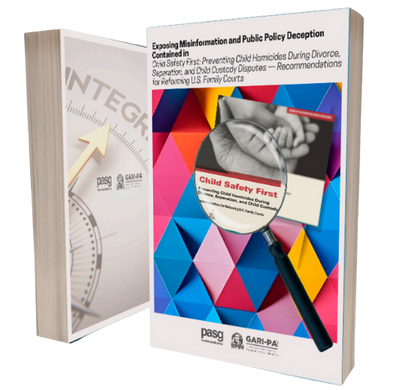
The Center for Judicial Excellence (CJE) recently generated a report, Child Safety First, that claims to have uncovered a crisis that is indicative of systemic problems in the family court system and that places countless children at risk each year. Based on the Center’s non-peer-reviewed research, CJE proposes that significant changes are needed in the family court system to rectify this alleged crisis. While we agree that our family court system needs changes, we believe these changes should be based on facts and accurate data. Experts from the Parental Alienation Study Group and Global Action for Research Integrity in Parental Alienation dispute the Center’s research and findings and contend that the CJE has engaged in academic disinformation and intentional public policy deception. The CJE report is inherently biased. It selectively appropriates scientific evidence about parental alienation, while denying scientific evidence that would discredit their report. As a result, these professionals feel that it is crucial to warn policymakers, the public, and the media about the inherent biases, misinformation, and deceit that permeate the Child Safety First report. The nature and content of their recommendations make it clear that the CJE has been deceptive in its representations to Congress and to state legislatures across the country. Moreover, the proposed recommendations are apparently an attempt to control the judiciary branch in regard to: judicial discretion; admissibility of evidence; admissibility of expert witnesses; judicial training curriculum and who is qualified to administer such training; types of interventions that can be ordered; and more. The CJE recommendations would not have prevented most of the reported homicides. While protecting children is a goal that we all desire, Child Safety First is in reality a smokescreen to advance the CJE’s anti-parental alienation agenda. Considering the factual distortions and ethical violations that the CJE has promoted in this report and in its other activities, it is negligent and reckless to give carte blanche credence to its policy recommendations. Parental alienation has been described as a mental condition in which a child (usually one whose parents are engaged in a high-conflict divorce) allies strongly with one parent and rejects a relationship with the other parent without legitimate justification (Lorandos & Bernet, 2020, pp. 5–6). It is also a social and policy issue.